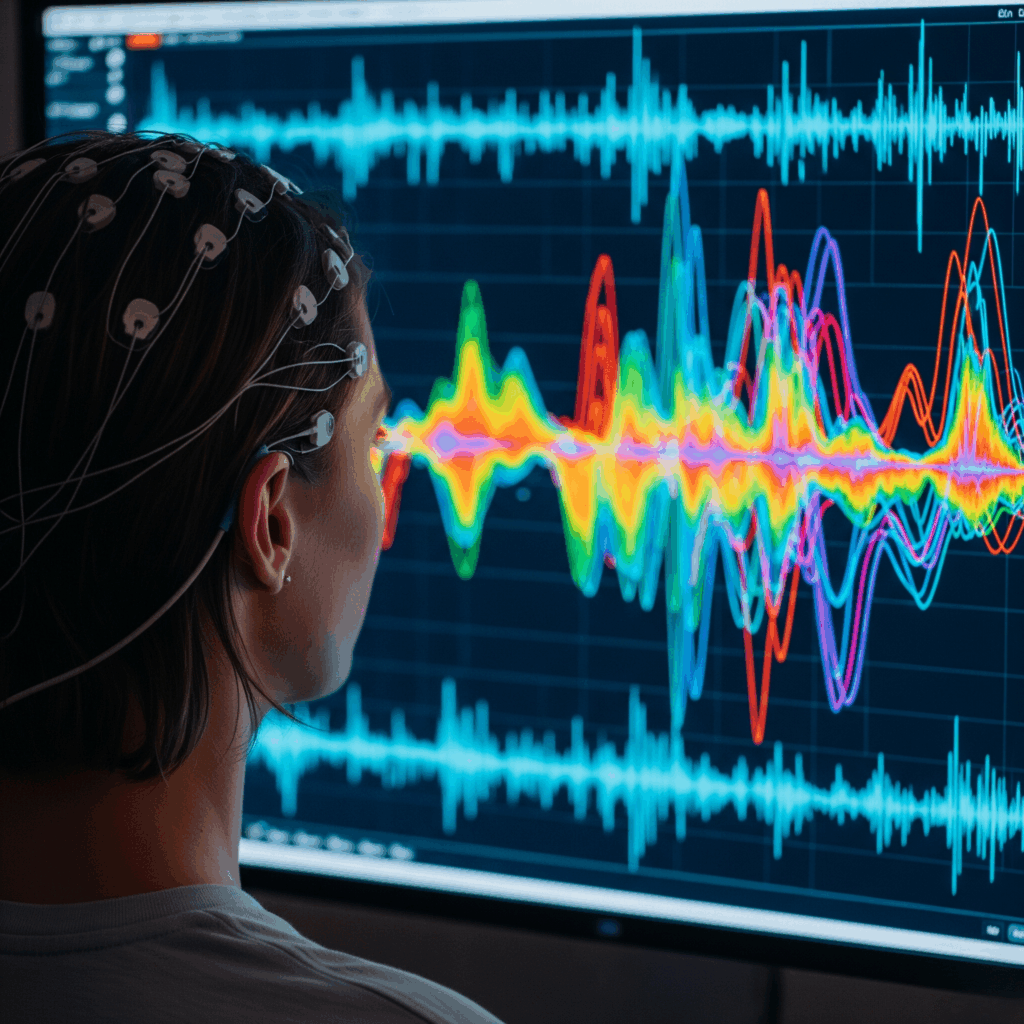Training the Brain for Balance
In our pursuit of well-being, we often focus on physical health, diet, and exercise. But what about the organ that orchestrates it all—the brain? Imagine being able to train your brain to achieve optimal function, to find its natural equilibrium. This isn’t science fiction; it’s the reality of neurofeedback.
Neurofeedback is a cutting-edge therapeutic technique that allows you to observe and modify your own brainwave activity in real-time. Think of it as a mirror reflecting your brain’s electrical signals. By making these unconscious processes visible, neurofeedback empowers you to learn to regulate them, leading to profound improvements in various aspects of your life.
How Does It Work?
At its core, neurofeedback operates on the principle of operant conditioning. Sensors placed on your scalp measure your brain’s electrical activity, known as brainwaves. These brainwaves are categorized by frequency (e.g., delta, theta, alpha, beta, gamma), each associated with different states of consciousness—from deep sleep to intense focus.
This real-time brainwave data is then fed back to you, often in the form of a game, video, or audio cue. For instance, if you’re trying to increase a specific brainwave frequency associated with relaxation, the game might progress, or the video might become clearer as your brain produces more of that desired wave. Conversely, if your brain produces too much of an undesirable frequency (like those linked to anxiety), the game might pause or the video might dim. Over time, your brain learns to adjust its activity to achieve the desired outcome, much like learning to ride a bicycle.

What Can Neurofeedback Help With?
The applications of neurofeedback are remarkably diverse, with a growing body of scientific evidence supporting its efficacy for a range of conditions. It’s not about “fixing” a broken brain, but rather about guiding it towards more efficient and balanced patterns.
- ADHD and Attention Issues: Neurofeedback can help individuals train their brains to produce more focused brainwave patterns, leading to improved attention, reduced impulsivity, and better academic or work performance.
- Anxiety and Stress Reduction: By encouraging the production of calmer brainwave states, neurofeedback can significantly reduce symptoms of anxiety, panic attacks, and general stress.
- Sleep Disorders: Training brainwaves associated with relaxation and sleep can help individuals fall asleep faster, sleep more soundly, and wake up feeling more refreshed.
- Peak Performance: Beyond addressing clinical conditions, neurofeedback is increasingly used by athletes, artists, and executives to enhance cognitive function, focus, creativity, and emotional regulation, helping them achieve their personal best.
- Trauma and PTSD: By helping to regulate dysregulated brain states often associated with trauma, neurofeedback can be a valuable tool in processing traumatic memories and reducing hypervigilance.

The Science Behind the Balance
The effectiveness of neurofeedback is rooted in the brain’s remarkable capacity for neuroplasticity—its ability to reorganize itself by forming new neural connections throughout life. Through consistent neurofeedback training, the brain learns new, healthier patterns of activity, essentially “rewiring” itself for better self-regulation. This leads to lasting changes, as the brain integrates these new patterns into its everyday functioning.
Leading research from institutions worldwide continues to unravel the intricate mechanisms of neurofeedback, solidifying its place as a powerful, non-invasive tool for brain health. It offers a promising path towards achieving greater mental clarity, emotional resilience, and overall well-being, empowering individuals to take an active role in their brain’s journey to balance.


Leave a Reply